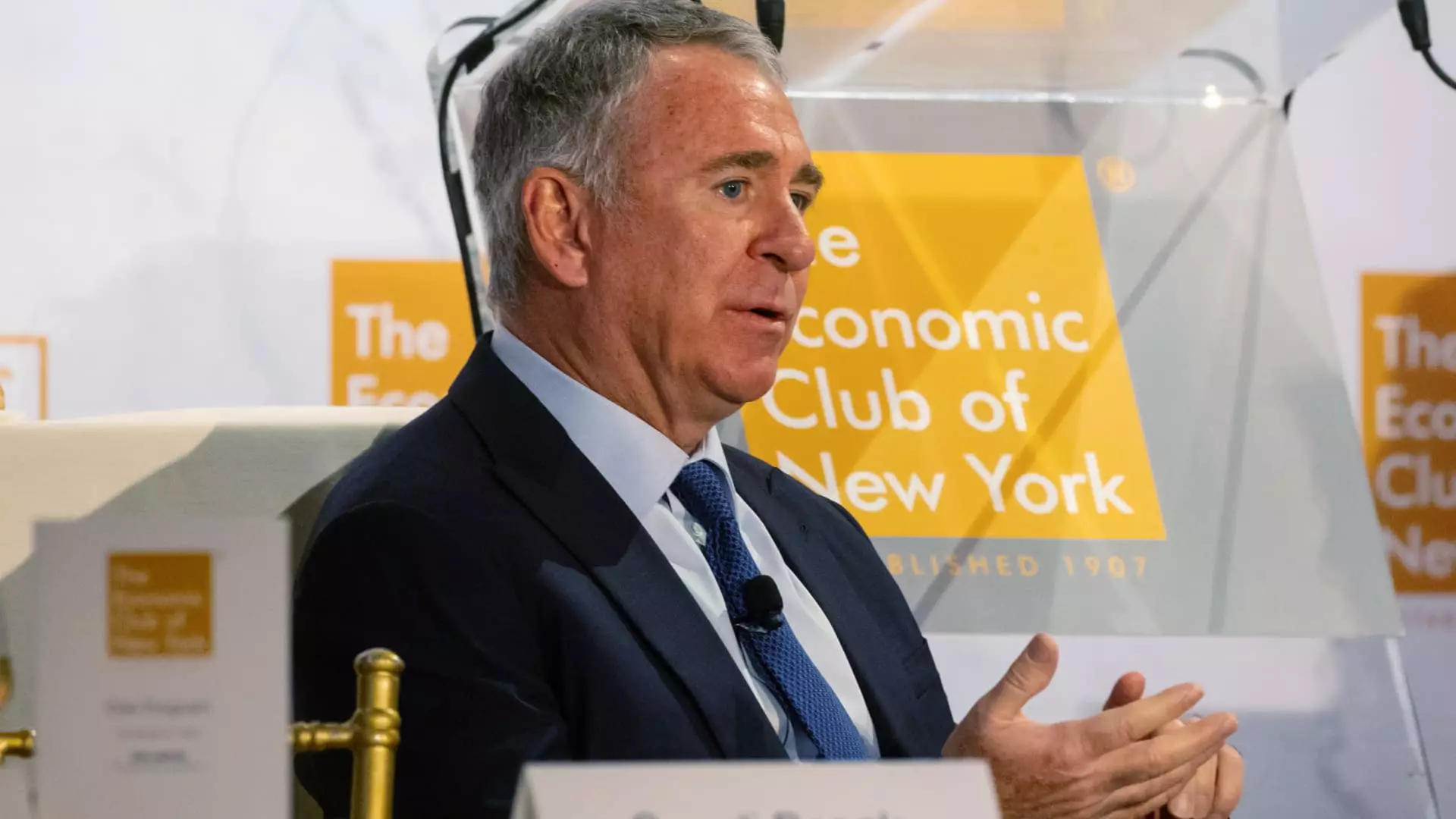In the wake of President-elect Donald Trump’s staunch commitment to implement high tariffs, prominent figures in the financial world are raising alarms about the potential repercussions on the broader economy. Ken Griffin, the CEO of Citadel, articulated his worries regarding this approach during a speech at the Economic Club of New York. He argued that such protective measures could lead to a trend known as crony capitalism—a system where businesses thrive through close ties with government officials rather than through fair competition. This type of economic setup often fosters inefficiency and complacency among domestic corporations, which ultimately undermines the strength of the market.
Griffin’s insights shed light on a common misconception surrounding tariffs. While it might appear that domestic companies could reap immediate benefits from reduced competition—thanks to protective tariffs—these advantages could be deceptive. Griffin emphasizes that the short-term “sugar rush” experienced by these firms could lead to long-term stagnation. When companies feel shielded from competition, they may lose the drive to innovate, thereby eroding their global competitiveness. Griffin posits that without the challenge of foreign rivals, American businesses may not only become complacent but also may fail to address the evolving needs of consumers.
Historically, protectionist policies have often led to adverse economic consequences. Economists agree that tariffs raise the costs of imported goods, which in turn can lead to inflated prices for consumers. As prices rise, purchasing power diminishes, and the nation’s economic productivity may take a hit just as it attempts to recover from the lingering effects of the pandemic. Griffin highlights the potential for a resurgence of lobbying efforts in Washington as businesses seek to maintain or heighten tariff protections that could ultimately shield them from the pressures to improve and innovate.
A concerning aspect of increasing tariffs is the potential for escalating special interest bargaining, where lobbyists push for higher tariffs, creating a cycle of protectionism that may harm the economy. Griffin warns that maintaining high tariffs can catalyze inefficiencies within domestic industries, deskilling the workforce and damaging the overall business landscape. It’s imperative for economic leaders to prioritize adaptability and competitiveness rather than relying on protective measures that can lead to stagnation.
Despite these economic uncertainties, Ken Griffin conveyed optimism about Citadel’s future. He indicated that the firm would continue to focus on private growth and development rather than pursuing a public listing at this time. By highlighting the benefits of staying private during a period of rapid growth, he hints at a strategic perspective that values long-term stability over immediate visibility. This reflection on Citadel’s future illustrates a broader principle: that in times of economic fluctuation, careful, strategic planning can provide a buffer against the unpredictable challenges that come with shifting political landscapes.
The resurgence of tariffs, as warned by Griffin, highlights significant risks that could reshape the American economic environment, urging businesses to remain vigilant, competitive, and innovative in the face of potential protectionist policies.

Leave a Reply